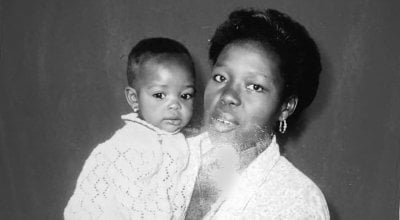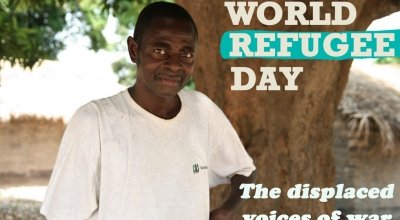
Read our 2023 annual report

Knowledge Hub
Places for the displaced: theatres, camps and fairs in the DRC
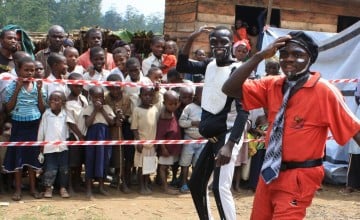
In North Kivu province of the Democratic Republic of Congo (DRC), insecurity and violence are part of everyday life. Our humanitarian response provides a range of support that aims to meet the immediate needs of displaced families while helping them to rebuild their lives.
Displacement
Armed clashes have exacerbated insecurity in the region, resulting in the displacement of people fleeing from the shifting zones of conflict. The population of North Kivu is consistently in danger of harassment, theft, sexual violence and forced labour.
In the midst of this violence and disruption, Concern Worldwide is working in diverse ways to bring assistance to the populations hit hardest by the DRC crisis. From cash transfers to agricultural training, protection committees to road-building, this holistic approach is re-establishing livelihoods and enhancing protection for the Congolese living in these precarious conditions.
Here Concern's programme officer, Silvia de Faveri visits the Masisi region of North Kivu to meet an actor, a tailor, a teacher and a community worker improving the lives of their communities.
La Victoire
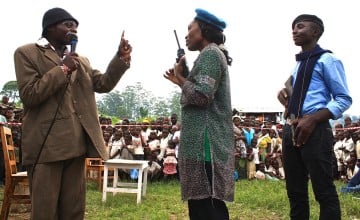
“I was very little when I started theatre, seven or eight,” Assurance Kilonpfu, the leader of theatre troupe La Victoire, tells us. “At that time, I starred as an angel during an event in church”. He continued performing roles in school plays, before setting up La Victoire at just 14 years old. “I felt that was the only thing I wanted to do,” he explains.
La Victoire’s performances draw entire communities together wherever they go. Their focus is not just on entertainment, however, but on creating meaningful and thought-provoking experiences through their productions. In tandem with protection committees set up by Concern, Assurance’s plays create an important opportunity for Masisi’s population to think critically about delicate issues. The ensemble’s themes range from sexual and domestic violence, child protection and human rights. Renditions are followed by question and answer sessions, offering guidance for the protection of human rights in the cycle of displacement that so many are caught up in.
Camp Kilmani
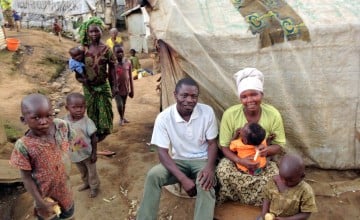
Edmond Matembe, a tailor and father of 5, has lived in Camp Kilmani since 2012, having been forced to flee his village due to clashes between militias. As camp leader, he has built up a relationship with Concern and our local partner organisations through our distributions of essential relief items.
The majority of people who reach internal displacement camps arrive empty-handed. Edmond introduces newcomers to their temporary home and accompanies them to Concern’s base in Masisi. Here, women like Lumoo (pictured below) can collect arrival kits, including plastic sheeting, clothes, blankets, kitchen sets, sanitary towels and soap. “Until now I have lived together with my sister and our children in the same hut,” Lumoo explains. “But now that I have received a sheet cover, I will build my own hut for myself and my children right next to hers.”
Edmond has found good use for the items he’s received too. As well as mattresses and kitchenwear, he’s put his tailoring skills to sewing the fabric he collected into a new pagne (wrap dress) for his wife.
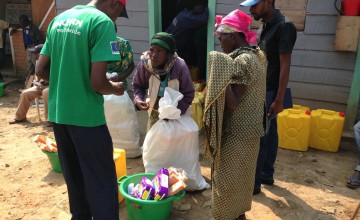
Roads out of poverty
In villages like Kazinga, Concern organises fairs where the community can come together to buy seeds, tools and livestock, as well as other important items for improving their quality of work and life. The most vulnerable receive vouchers and direct cash transfers, allowing them to invest in what they need most. Others take part in cash-for-work programmes, such as the rehabilitation of over 40km of roads around Masisi.
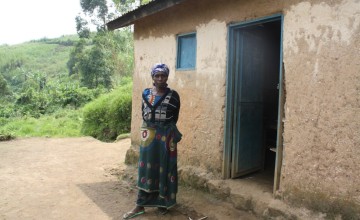
Sarah Nyirabagende, a 45 year old woman, has escaped from a precarious living situation and is now a member of a protection committee which travels from church to church teaching about children’s rights to education, clothes and decent food. She has also earned money working on the road rehabilitation project. She visited a fair with her pay:
“I bought a tarpaulin. Even if clashes broke out again, we would be able to flee into the forest with our tarpaulins to cover our shelters during the rain. I bought some pans, clothes for my children and also for myself… [and] I paid the school fees for my children.”
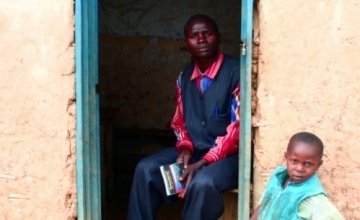
Bitwaki Ntezi, a teacher by trade, was the supervisor of the road rehabilitation team. He explains the importance of the project to the community: “When people started to die from cholera, Doctors Without Borders could easily come to the village with their cars, bringing medicines and healing people.”
It’s directly impacted his own life too. “With the money from that work I bought sheets, plates and clothes for my wife and myself. I also bought a goat – she has already given birth, so now we have two.”
Concern's emergency programme in North Kivu has provided support to more than 7,000 families. Our humanitarian response in the Democratic Republic of Congo is financed by ECHO, OFDA and Irish Aid.
Follow Concern
Keep up to date with all of Concern's work and follow us on Instagram.




